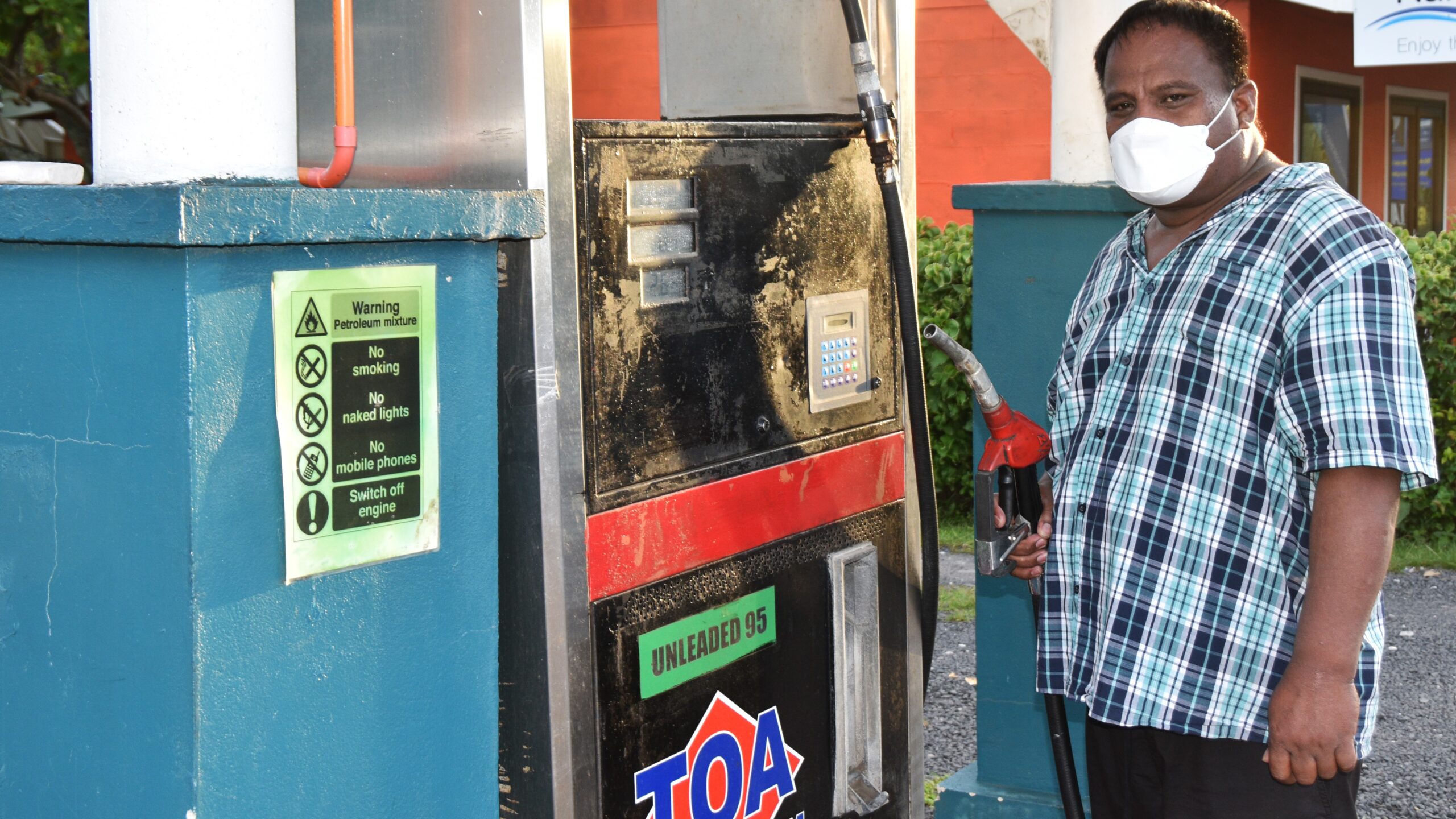Fuel prices go up
Thursday 19 May 2022 | Written by Matthew Littlewood | Published in Economy, National

Convenience Store’s Teibi Ioteba at the shop’s petrol station earlier this year. Petrol prices continue to rise in Cook Islands. Photo: FILE/RASHNEEL KUMAR/22031320
The price at the petrol pump has increased substantially, with supply issues and Russia’s conflict with Ukraine being two major factors.
The Price Tribunal’s notice, placed in the Cook Islands News on Tuesday and Wednesday, informs the public that in Rarotonga, the maximum allowable petrol and diesel prices will increase from $2.61 per litre to $2.89 per litre – a jump of 11 per cent.
It comes after the maximum allowable price had been held at $2.61 per litre for several months.
Price Tribunal president Louis Enoka said the Middle East and Asian regions have seen a tumultuous couple of years with the onset of the Covid-19 pandemic and recently, the war in Ukraine.
“There have been, and continue to be, fuel-supply chain disruptions,” Enoka said.
“Additional to this, larger (mainly European) economies and countries are purchasing energy and feedstock at unprecedented levels, to the detriment of smaller economies and countries that paved the road for tougher fuel export conditions for us.
“With the new price order initiated this week, we are now on par with NZ pricing. This is a huge bonus and benefit at this point in time for us in the Cook Islands.”
Asked about the feedback from retailers, Enoka said “at this point in time, it has been to a large extent accepted and more so expected”.
“The inevitable increase in fuel price is a combination of market uncertainty, increased freight costs, availability, supply and demand; and to a lesser but noticeable extent, the war in Ukraine,” he said.
“Purchase price, freight, operational costs of plant, exchange rates and our extremely small volumes: every step of the way has increased.”
In Aitutaki, the maximum allowable price of petrol is set at $3.22 per litre, while in the Southern Group of the Pa Enua it is $3.71 and $3.86 in the Northern Group. Diesel is $3.08 per litre in Aitutaki, $3.52 in the Southern Group of the Pa Enua and $3.62 in the Northern Group.
Enoka said the reason for the large discrepancy in prices compared to Rarotonga comes down to the added freight component of domestic shipping, along with extra handling and devanning costs with smaller volumes to each Island.
Ministry of Finance and Economic Management (MFEM) senior macroeconomist Tristan Metcalfe said the increases will have an impact on living costs.
“Fuel costs tend to have a broader impact as they are felt at each step in the supply chain, adding to the cost of getting goods landed, as well as the direct cost of fuel itself,” Metcalfe said.
“Unfortunately increases in fuel prices are one of the more difficult price increases to avoid impacts from, as there are limited alternatives available and prices are set on a global level.”
Metcalfe said while these increases were difficult to avoid, there were some small changes that might help if they are available to people.
“For example, using motorbikes instead of cars where possible uses less fuel and is cheaper, and walking or cycling are also alternatives that also provide health benefits. We do recognise that some of these alternatives aren’t always available for various reasons though,” he said.
Cooks’ Island Bus Passenger Transport general manager Danny Cook said it would not be increasing bus fares in the immediate future, but would “monitor the situation as it progresses”.
“We’re not going to make any changes just yet,” Cook said.












































